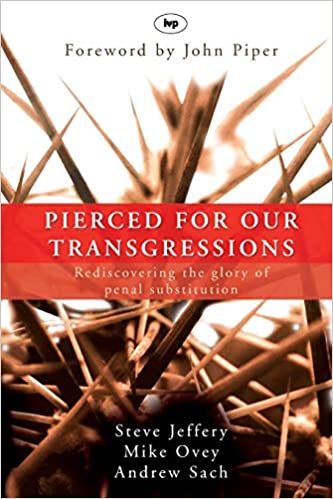In this substantial paperback the authors present a well-informed defence of penal substitution. This doctrine – which Evangelicals have always considered to lie at the heart of the atonement – teaches ‘that God gave himself in the person of his Son to suffer instead of us the death, punishment and curse due to fallen humanity as the penalty for sin’.The book aims to help ordinary Christians as well as pastors and scholars to understand what this evangelical teaching really means and to answer, firmly yet charitably, the criticisms raised against it. Roger Nicole, in his commendation, thinks it is ‘wonderful to have a whole book on penal substitution’.There are two parts to the work. In part one the authors set out the positive case for penal substitution, bringing together ‘a detailed examination of the key biblical passages, a consideration of the important theological and doctrinal issues, and a comprehensive survey of the teaching of the Christian church through the ages’. The second part seeks to answer the objections raised against this classical evangelical belief.The biblical evidence covers passages from Exodus 12, Leviticus 16, Isaiah 52-53, Mark, John, Romans and 1 Peter. New perspective ideas are not allowed to diminish the importance of such texts as Galatians 3:10-13.The theological framework for penal substitution covers important themes such as the spoiling (‘decreation’) of God’s initially good creation; the need for a work of recreation; God’s righteous character, resulting in his warnings of judgement and promises of salvation; and God’s love towards his creation shown supremely in the atonement. If penal substitution were excluded it would be to the serious detriment of many of these themes.The pastoral importance of the subject is not overlooked. Its implications concerning the assurance of God’s love, confidence in God’s truthfulness, a passion for God’s justice and realism about our sin are all presented. The book follows this by looking at twenty-one preachers and theologians, from early church times to the present day, who taught the centrality of penal substitution to the Christian gospel.The authors then proceed to offer help to those who have been unsettled by the recent criticisms of penal substitution or who are suspicious or undecided about it. Some twenty-six objections are analysed and dealt with in a firm yet charitable way.Before they finish the authors also draw attention to the vague and sometimes emotive language used by objectors to the doctrine and encourage readers not to be intimidated but to engage in the hard work of looking at the biblical teaching. An appendix both warns and helpfully advises preachers (and others) about using illustrations to explain the doctrine of penal substitution.This book should be on the shelf of every preacher and teacher of God’s Word. Church members will also be helped and encouraged. It should prove a standard work on the subject for many years to come.
Pierced for Our Transgressions: Rediscovering the Glory of Penal Substitution

Join the discussion
Read community guidelines
ADVERTISE


